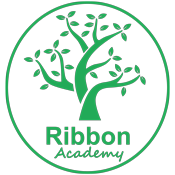Our SEND Information Report – which is part of Durham County Council’s Local Offer – provides details about how we support children and young people with Special Educational Needs in our school.
The Children and Families Bill was enacted in September 2014. From this date Local Authorities (LA) and schools are required to publish and keep under review information about services they expect to be available for children and young people with special educational needs (SEND) aged 0-25. The LA refer to this as the ‘Local Offer’. The intention of the Local Offer is to improve choice and transparency for families. It will also be an important resource for parents in understanding the range of services and provision in the local area.
The SEND Information Report was reviewed and updated in September 2021.
If you would like to discuss our SEND information in more detail, please contact the school to arrange an appointment with Mrs D Richardson.
Our Key Contacts include: –
- Mrs Ashleigh Sheridan (Headteacher)
- Mrs D Richardson (SENDCo)
- Mr Ian Stephenson (SEND Link Trustee)
What is SEND?
In our school we value every child as an individual. We promote the rights of children at all times in accordance with the United Nations Convention on the Rights of the Child. Article 28 states that every child has the right to an education and this is our focus for all. Article 23 states that children with disabilities should live full and decent lives with dignity and independence. Our aim is to do all we can to promote the development, independence and progress of our children including those with additional needs.
The support received by a child or young person with a special educational need and/or disability will vary significantly depending on their needs. It may involve a range of professionals across the education, health and social care systems. You can also read the Government’s guidance on the SEND system, and children and young people and their families’ rights under it.
Children are classified as having a Special Educational Need and/or Disability if:-
- they have a learning difficulty or disability which makes it much harder for them to learn than other pupils of the same age. They require special educational provision to be made for them.
- They have a disability, it means a physical or mental condition that limits their movements, senses or activities.
Communication and Interaction
Children and young people with speech, language and communication needs (SLCN) have difficulty in communicating with others. This may be because they have difficulty: saying what they want to, understanding what is being said to them · or they do not understand or use social rules of communication. The profile for every child with SLCN is different and their needs may change over time. They may have difficulty with one, some or all of the different aspects of speech, language or social communication at different times of their lives. Children and young people with Autistic Spectrum Disorder including Asperger’s Syndrome and Autism, are likely to have particular difficulties with social interaction. They may also experience difficulties with language, communication and imagination, which can impact on how they relate to others
Cognition and Learning
Support for learning difficulties may be required when children and young people learn at a slower pace than their peers, even with appropriate differentiation. Learning difficulties cover a wide range of needs, including Moderate Learning Difficulties (MLD), Severe Learning Difficulties (SLD), where children are likely to need support in all areas of the curriculum and associated difficulties with mobility and communication, through to profound and multiple learning difficulties (PMLD) Specific learning difficulties (SpLD), affect one or more specific aspects of learning. This encompasses a range of conditions such as dyslexia, dyscalculia and dyspraxia.
Social, Emotional and Mental Health Difficulties
If your child has social, emotional or mental health difficulties, they may have problems with some or all of the following:
- Being unhappy
- Low self-esteem or poor self-image
- Being confrontational and disruptive in the classroom
- Being withdrawn
- Being anxious
- Interacting with their peers and/or adults
- Expressing their feelings
- Anger/anger management
- Self-harm
- Hyperactive tendencies and attention difficulties
- Undiagnosed or diagnosed learning difficulties
- Underachievement
Sensory and/or Physical Difficulties
Some children and young people require special educational provision because they have a disability which prevents or hinders them from making use of the educational facilities generally provided. These difficulties can be age related and may fluctuate over time. Many children and young people with vision impairment (VI), hearing impairment (HI) or a multi-sensory impairment (MSI) will require specialist support and/or equipment to access their learning, or rehabilitation support. Staff within our academy are skilled in the recognition and support of the four broad areas of SEND and additional support from external agencies is sought as and when appropriate.
Pupils with a medical need:
If a pupil has a medical need (whether short or long term) then a detailed Care Plan is compiled by a member of school staff and the school nurse in consultation with parents/carers. These are discussed with all staff who are involved with the pupil. Staff receive annual training for specific needs (asthma, epilepsy, allergies/epipen use etc.) which is delivered by the school nurse or another medical professional. Where necessary and in agreement with parents/carers, medicines are administered in school but only when a signed Medical Administration Form is in place to ensure the safety of both child and staff member. There are always several first aiders on site at all times.


